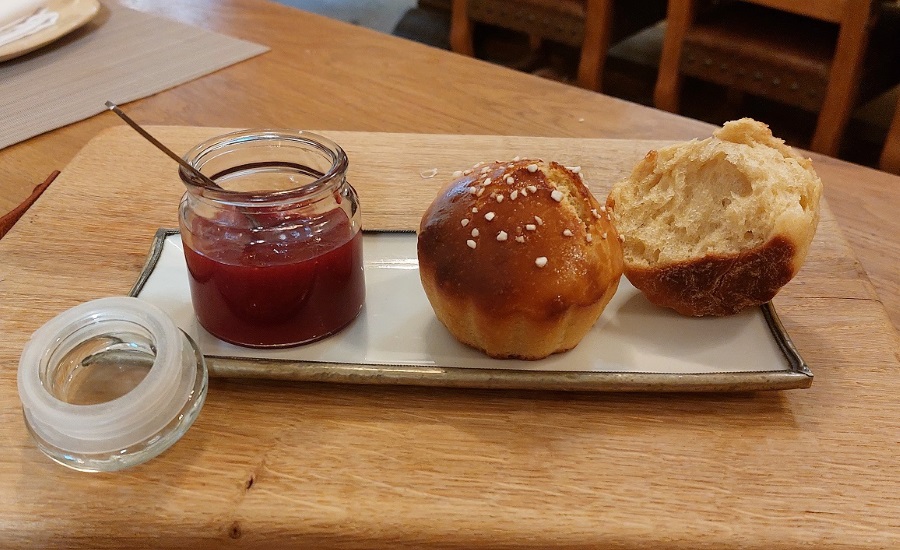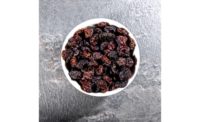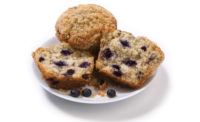FoodTech start-up Gavan Technologies, Ltd. is leveraging its no-waste protein extraction platform to deliver FaTRIX, a leading-edge alternative fat solution. FaTRIX offers a series of high-performance, protein-based fat substitutes that serve as alternatives to butter and other commonly used fats in a variety of bakery products.
The patented, plant-based fat-protein matrix is designed to replicate the functionality of animal fat. It is fully sustainable, clean label, and slashes saturated fat by up to 80%. It also is trans fat-free. Gavan is promoting FaTRIX’s potential as a butter replacer for the bakery industry.
As producers of plant-based foods increasingly seek alternatives to animal-derived ingredients that satisfy the nutritional and sensory demands today’s consumers demand, they are aware of the immense impact of fat on the culinary experience. The aroma, flavor, tenderness, and overall mouthfeel of foods are largely a function of lipids, which typically make up from 10-40% of a product.
FaTRIX satisfies the sensory cravings
“Traditionally, pastries have relied on fats derived from animals,” explains Itai Cohen, Gavan co-founder and CEO. “Despite the widespread use of vegetable fats as an alternative, they still cannot match the characteristic taste, texture, and smoothness that real butter confers. Replacing animal fat with plant-based oils can create difficulties due to the fluid nature of these ingredients, yet hydrogenated oils are a less-than-ideal solution.”
FaTRIX is composed of three natural ingredients: The extracted protein acts as a base upon which plant oil and water are bound, creating a protein-enriched texturized fat. Traditional plant oils, such as olive or sunflower oil, possess low retention capacity and are prone to release during baking, leading to a loss of tenderness. Firmer tropical oils such as palm and coconut oils, have high saturated fat content, can impact flavor, and are subject to volatile supply chains. These factors are driving the search for alternative solutions that can provide similar functional qualities to animal fats.
FaTRIX addresses multiple critical problems, delivering the desired sensory and shelf-life properties often missing in plant-based pastries. The solution was developed from Gavan’s proprietary waste-free protein-extraction technology designed to extricate the full value of the plant, leaving none of its components redundant while fully maintaining the integrity of the protein’s peptide structure.
“The composition of oil, water, and protein in FaTRIX delivers superior binding and cooking abilities, making it an ideal and convenient solution for food formulators,” asserts Uri Jeremias, culinary expert and restaurant owner. Jeremias co-founded Gavan as a company focused on discovering novel ingredients for the culinary industry. “FaTRIX boasts a high melting point and fat-holding capacity, preventing it from leaching during processing or heating. These properties are crucial to maintaining the succulence and tenderness of the final product. Moreover, it acts as a carrier for flavors, vitamins, and beneficial omega-3.”
The composition of oil and protein ingredients used in a formulation as well as their ratios can be specifically tailored to the food application needs. “Our platform works with all types of plant oils, from olive and sunflower to canola,” Cohen explains. “Some products require 50/50 fat-to-water ratio. Others demand firmer fat integration. We can customize FaTRIX to meet any range.”
Butter it up
Following successful pilot trials of its fat matrix in multiple bakery products, Gavan is introducing FaTRIX to the bakery industry. In one trial, FaTRIX successfully replaced butter in a soft and airy brioche, yielding a five-fold reduction in saturated fat. “This marks a pivotal achievement for us, as butter has long been considered the irreplaceable key element in brioches,” notes Jeremias. “FaTRIX is a solution that boasts the same workability as dairy butter, without needing a long list of added ingredients.”
“Our Fat matrix opens the door to a world of new possibilities for bakery and food formulators,” concludes Cohen.




